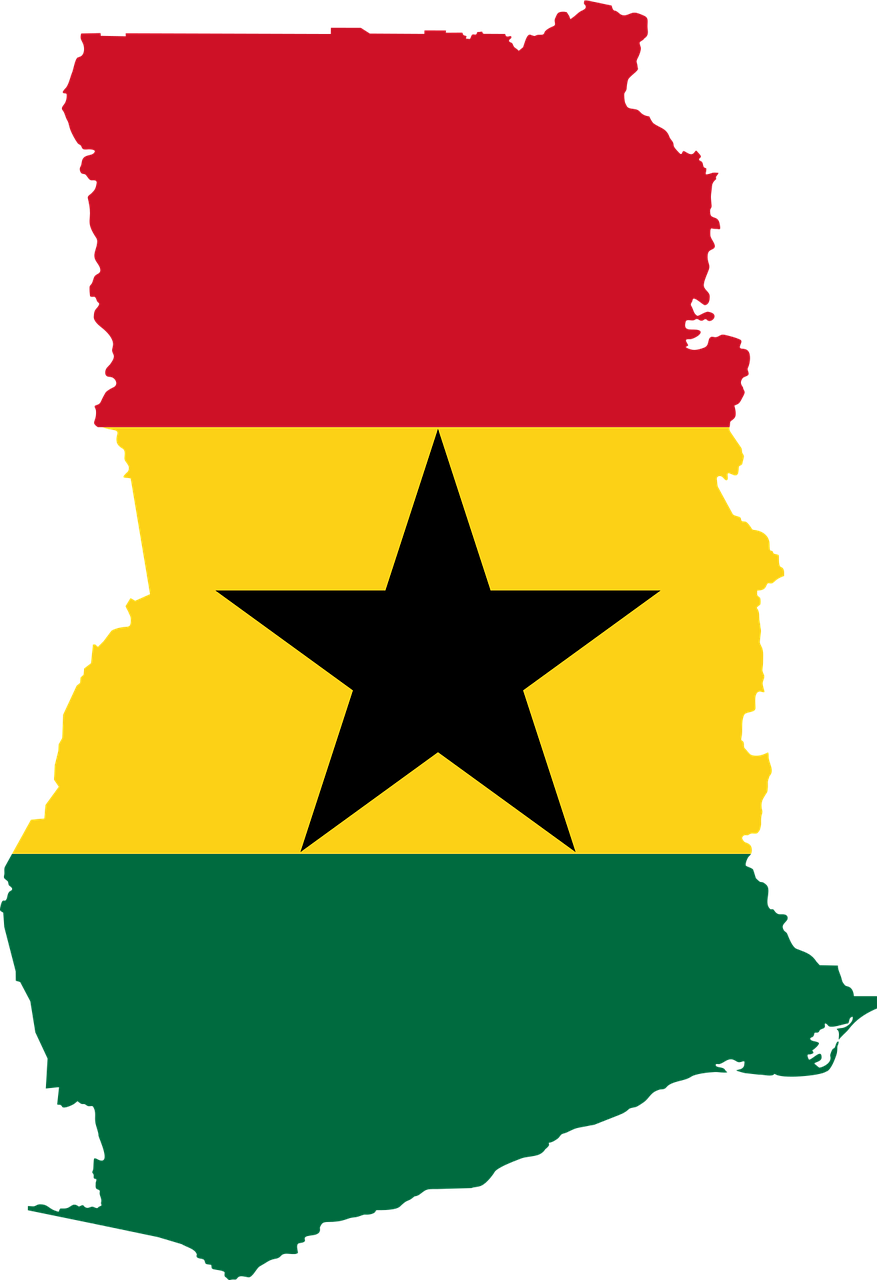Ghana
Overview
The Gateway to West Africa, A Fusion of Tradition and Progress
Located along the Gulf of Guinea, Ghana stands as a beacon of democracy, stability, and growth in West Africa. With a history that dates back to ancient empires, Ghana was the first African nation to gain independence from colonial rule in 1957, setting the stage for its role as a leader in the region.
Accra, the vibrant capital, is a blend of modernity and tradition, where bustling markets, colonial-era architecture, and contemporary skyscrapers coexist. The city serves as a major hub for business, culture, and diplomacy in West Africa.
Ghana's economy, historically anchored in gold, cocoa, and timber exports, has diversified over the years. The discovery of oil, investments in infrastructure, and a burgeoning tech startup scene in cities like Accra and Kumasi underscore its growth trajectory. The government's pro-business policies, coupled with a stable political environment, have made Ghana an attractive destination for foreign investment.
Culturally, Ghana is a tapestry of diverse ethnic groups, languages, and traditions. Festivals like the Ashanti's Akwasidae, the colorful kente cloth, and the rhythms of Highlife music showcase its rich heritage. Tourists are drawn to its historical sites, especially the coastal forts and castles that serve as poignant reminders of the transatlantic slave trade.
As Ghana continues to chart its path forward, its emphasis on education, sustainable development, and regional integration positions it as a prime destination for investors and businesses. With its strategic location, rich resources, and hospitable people, Ghana offers a unique blend of opportunities in West Africa.

Key indicators

Population

GDP per capita

Nominal GDP

Purchasing Power Parity GDP

Main export

Foreign direct investment

Stock market capitalization

GDP growth rate
- Economic Snapshot
- Business Environment
- Startup Ecosystem
- Infrastructure & Technology
- Opportunities & Challenges
- Cultural Insights
Ghana is a lower-middle-income country in West Africa. The country has a diverse economy, with major sectors including agriculture, industry, and services. Ghana is also a major producer of gold and cocoa.
The Ghanaian government is committed to economic reform and diversification. The government is investing in infrastructure, education, and healthcare. The government is also working to improve the business climate and attract foreign investment.
Ghana's economy has been growing steadily in recent years. The country's GDP grew by 4.2% in 2022. However, Ghana's economy is facing a number of challenges, including inflation, unemployment, and poverty.
Ghana's business environment is improving, but there are still a number of challenges. The country ranks 137th out of 190 countries in the World Bank's Ease of Doing Business Index.
The main challenges to doing business in Ghana include:
- Corruption: Corruption is a major problem in Ghana. The country ranks 73rd out of 180 countries in Transparency International's Corruption Perception Index.
- Bureaucracy: The Ghanaian bureaucracy can be complex and time-consuming to navigate.
- Infrastructure: Ghana's infrastructure is underdeveloped, which can make it difficult and expensive to transport goods and people.
- Access to finance: Access to finance can be a challenge for businesses in Ghana, especially small and medium-sized enterprises (SMEs).
Despite the challenges, Ghana offers a number of opportunities for businesses and investors. The country has a young and growing population, a growing economy, and a government that is committed to economic reform.
Ghana's startup ecosystem is growing rapidly. There are a number of startup incubators and accelerators in Ghana, and the government is providing support to startups.
Some of the most promising sectors for startups in Ghana include:
- Fintech: Ghana has a young and tech-savvy population, and there is growing demand for fintech services.
- E-commerce: E-commerce is growing rapidly in Ghana, as more and more people gain access to the internet and smartphones.
- Agriculture: Ghana has a large agricultural sector, and there are opportunities for startups to develop new technologies and services to support the sector.
- Education: Ghana's education system is underdeveloped, and there are opportunities for startups to develop new educational products and services.
Ghana's infrastructure is underdeveloped, but the government is investing heavily in new infrastructure projects. The government is also investing in the development of Ghana's digital economy.
Ghana has a nationwide 4G LTE network, and the government is planning to launch a 5G network in the coming years. Ghana also has a growing number of internet users, and the government is working to expand internet access to rural areas.
The government is also investing in new transportation infrastructure, such as roads, bridges, and airports. The government is also working to improve Ghana's energy infrastructure.
The development of Ghana's infrastructure is essential for economic growth. Better infrastructure will make it easier and cheaper to transport goods and people, and it will also make Ghana more attractive to foreign investors.
Ghana offers a number of opportunities for businesses and investors. The country has a young and growing population, a growing economy, and a government that is committed to economic reform.
One of the key opportunities for businesses and investors in Ghana is in the infrastructure sector. The government is investing heavily in new infrastructure projects, such as roads, bridges, and power plants. This is creating new opportunities for businesses in the construction and engineering sectors.
Another opportunity for businesses and investors in Ghana is in the non-oil sector. The government is committed to economic diversification, and is investing in a number of sectors, including agriculture, manufacturing, and tourism. This is creating
Ghana is a country with a rich and diverse culture. The country has over 250 ethnic groups, each with its own language and culture. Ghana is also home to a number of religious groups, including Christians, Muslims, and traditional religions.
Ghanaians are generally friendly and welcoming people. They are also very proud of their culture and heritage. Businesses and investors who are respectful of Ghanaian culture will likely be successful in the country.
Here are some additional cultural insights for businesses and investors operating in Ghana:
- Ghanaians place a high value on family and community.
- Ghanaians are generally respectful of authority figures.
- Ghanaians prefer face-to-face meetings to email or phone calls.
- Ghanaians are known for their hospitality.
- Ghanaians are also known for their love of music and dance.
Businesses and investors who understand and respect Ghanaian culture will be better positioned to succeed in the country.
Here are some specific tips for businesses and investors operating in Ghana:
- Dress appropriately when meeting with Ghanaian business people. Men should wear suits and ties, and women should wear conservative business attire.
- Be prepared to spend time socializing before getting down to business. Ghanaians value relationships, and it is important to build rapport with them before discussing business matters.
- Be patient and understanding. Ghanaians are generally relaxed and easy-going, but they can also be quite shrewd business people. It is important to be patient and to be prepared to negotiate.
- Be honest and transparent. Ghanaians value honesty and transparency in business dealings. Be prepared to be open and honest with them, and to be accountable for your actions.
By following these tips, businesses and investors can increase their chances of success in Ghana.
Here are some additional tips:
- Be aware of the Ghanaian calendar and avoid scheduling meetings during major religious holidays.
- Be respectful of Ghanaian religious customs and traditions.
- Be aware of the Ghanaian dress code and avoid wearing revealing clothing.
- Be mindful of your body language and avoid making gestures that could be considered offensive in Ghana.

Investment Landscape & Opportunities in Ghana
- Start-up & SME Investments
- Impact & Green Investments
- Government Bonds & Stock Market
- Public-Private Partnerships
- Foreign Direct Investments
- Commodities & Infrastructure Investments
- Real Estate Development
- Cultural and Creative Industries

Leading
startups in Ghana
Comming up soon

